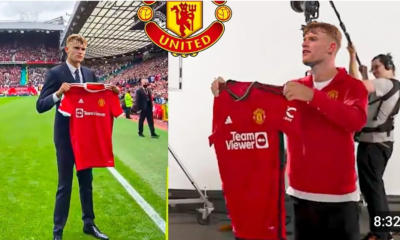Blog
Michigan State in Talks to Sell Naming Rights for Spartan Stadium and New Arena
Michigan State University Weighs Major Move: Selling Naming Rights to Spartan Stadium and New Arena Sparks Excitement and Debate
In a bold financial strategy aimed at bolstering its athletic programs and campus infrastructure, Michigan State University (MSU) is reportedly exploring the possibility of selling the naming rights to its iconic Spartan Stadium and the upcoming athletic arena. This move, if finalized, could bring in millions of dollars, reshape campus branding, and ignite a vigorous debate among students, alumni, fans, and community stakeholders about the implications of commercializing university landmarks.
### The Background: A Strategic Financial Decision
Michigan State University, like many major collegiate institutions, faces increasing financial pressures amid rising operational costs, facility upgrades, and the need to attract top-tier athletes and programs. Traditionally, universities have relied on tuition, state funding, donations, and ticket sales to sustain their athletic and academic missions. However, in recent years, alternative revenue streams—such as corporate sponsorships and naming rights—have gained prominence.
Selling naming rights involves a university granting a corporate partner the right to name a facility in exchange for a substantial financial contribution. This practice has become commonplace in professional sports and commercial arenas but remains somewhat controversial within the context of educational institutions, especially those with storied histories and deep community ties.
### The Potential Deals: Who Might Be Interested?
While no official contracts have been signed yet, industry insiders suggest several major corporations could be potential partners for MSU’s stadium and arena:
– **Major National Brands:** Companies like Ford, General Motors, or tech giants such as Google or Microsoft might see value in associating their brand with Michigan State’s storied athletic programs.
– **Local and Regional Businesses:** Michigan-based companies, including auto suppliers, manufacturing firms, or regional banks, may seek to strengthen their community presence through such sponsorships.
– **Emerging Industries:** As Michigan diversifies its economic landscape, industries like renewable energy, healthcare, or technology startups could be interested in tapping into the university’s vibrant student and alumni network.
The actual valuation of these naming rights could range from several million to tens of millions of dollars, depending on the length of the agreement, branding opportunities, and the prominence of the facilities.
### The Rationale Behind the Move
MSU’s administration cites several reasons for exploring this option:
1. **Revenue Generation:** With athletic programs competing at high levels and ambitious facility upgrades planned, the university needs sustainable revenue streams. Selling naming rights offers a lucrative way to fund these initiatives without increasing student fees or relying solely on donations.
2. **Facility Modernization:** The new arena, set to replace or complement existing structures, will require significant investment. The funds generated can be reinvested into state-of-the-art amenities, ensuring the university remains competitive nationally.
3. **Enhanced Visibility and Branding:** Partnering with well-known corporations can elevate MSU’s profile, attract top recruits, and foster partnerships that benefit students and faculty.
4. **Long-Term Financial Planning:** Securing multi-year sponsorship deals provides predictable income, aiding in long-term budgeting and strategic planning.
### The Community and Stakeholder Response
The prospect of selling naming rights, however, has ignited a spectrum of reactions across campus and beyond:
– **Alumni and Traditionalists:** Many alumni and longtime fans express concern about commercializing cherished landmarks. They argue that stadiums and arenas are historic symbols of school spirit and should retain their traditional names, reflecting the university’s heritage rather than corporate interests.
– **Students and Young Alumni:** Some younger stakeholders see the potential benefits—improved facilities and enhanced athletic performance—while others worry about losing the sense of tradition.
– **Local Community:** Residents and local businesses are divided. Some see the opportunity for economic growth and increased visibility for Lansing and East Lansing, while others fear commercialization could erode the university’s identity.
– **University Leadership:** MSU’s administration emphasizes that any deal would be carefully negotiated to balance revenue needs with respect for tradition. They also highlight that the university would retain control over branding and naming standards, ensuring the integrity of the campus environment.
### The Broader Context: Trends in Collegiate Sponsorships
MSU’s considerations are part of a broader trend among universities nationwide. According to the NCAA and various collegiate organizations, more institutions are turning to corporate sponsorships to bridge funding gaps. Notable examples include:
– **Arizona State University’s Desert Financial Arena:** Named after a regional bank, generating millions annually.
– **University of Maryland’s Xfinity Center:** Named after the telecommunications giant, a relationship that has lasted decades.
– **University of Notre Dame’s Purcell Pavilion:** Named for benefactors but also open to sponsorship opportunities.
While these deals provide vital revenue, they also raise questions about the commercialization of higher education and the influence of corporate interests on academic institutions.
### Legal and Contractual Considerations
Any potential deal would involve complex negotiations, including:
– **Duration of the Agreement:** Typically ranging from 10 to 20 years.
– **Naming Rights Scope:** Whether the deal covers just the stadium/arena or includes signage, branding rights, digital media, and other promotional opportunities.
– **Financial Terms:** Upfront payments, annual minimum guarantees, and revenue-sharing arrangements.
– **Contingency Clauses:** Provisions addressing changes in sponsorship, termination rights, and branding disputes.
– **Community and Cultural Sensitivity:** Ensuring the deal aligns with the university’s values and community expectations.
### The Future Outlook
While no official announcement has been made, MSU’s exploration of selling naming rights indicates a proactive approach to financial sustainability. If successful, the university could see a significant influx of funds that might be reinvested into student scholarships, academic programs, and campus improvements.
However, the decision will likely involve extensive consultations with stakeholders, legal reviews, and public relations campaigns to manage community expectations and preserve the institution’s legacy.
### Conclusion: A Pivotal Moment for Michigan State University
The potential sale of naming rights to Spartan Stadium and the new arena marks a pivotal moment in Michigan State’s history. It encapsulates the balancing act between tradition and innovation, community and commerce, heritage and progress.
As the university weighs this significant decision, all eyes are on East Lansing. Will MSU embrace a new era of financial independence and branding opportunities, or will it prioritize preserving its historic symbols and campus identity? The outcome could set a precedent for other institutions navigating similar crossroads in the evolving landscape of collegiate athletics and higher education funding.
Whatever the final decision, one thing is clear: Michigan State is at a crossroads, and its choices now will shape the future of its athletic programs, campus culture, and legacy for generations to come.
-

 Arsenal2 years ago
Arsenal2 years agoSad News Arsenal ex player who is goal scorer confirmed dead this morning
-

 Liverpool2 years ago
Liverpool2 years agoSad News Sadio Manè Confirmed Dead Today By Sky Sports Reporters, Open For Full Story 👇
-

 Blog1 year ago
Blog1 year ago“I was forcefully removed from Manchester United squad and now I’ve joined the best team in the world…I will revenge and as a result, I’ve ordered my friend who’s their best player currently to leave there with immediate effect and he has agreed”: Former Man United player angered by United decision to removed him from the squad as he ordered the Club’s best player to leave immediately.
-

 Blog1 year ago
Blog1 year agoSad News: Manchester United player died when playing for his country England yesterday 😢 😔
-

 Blog2 years ago
Blog2 years agoR.I.P: Formal Real Madrid and France international confirm death this morning
-

 Chelsea2 years ago
Chelsea2 years agoBreaking New:”Roman Abramovich could get Chelsea back”? Chelsea owner review the conversation between him and Roman Abramovich in. Deal about getting Chelsea back
-

 Blog2 years ago
Blog2 years agoUNBELIEVABLE: Manchester City midfielder KELVIN DE BRUYNE divorced wife this morning after DNA test revealed their 5 years old son belongs to formal Manchester United player
-

 Manchester United1 year ago
Manchester United1 year agoOFFICIAL NOW: Manchester United announce the signing of 23yr sensational player after beating Liverpool and Madrid for His signature, agreement reached on a 5yr deal, Medical completed – announcement ongoing












